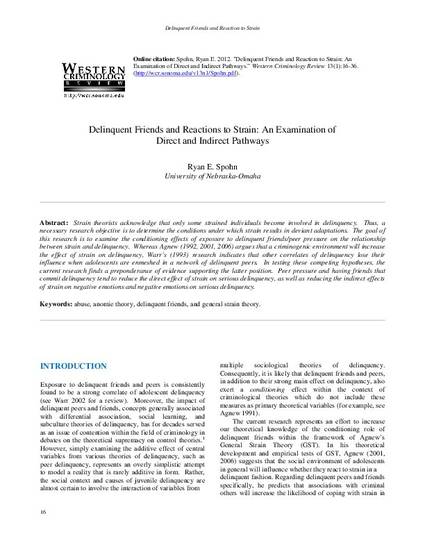
Strain theorists acknowledge that only some strained individuals become involved in delinquency. Thus, a necessary research objective is to determine the conditions under which strain results in deviant adaptations. The goal of this research is to examine the conditioning effects of exposure to delinquent friends/peer pressure on the relationship between strain and delinquency. Whereas Agnew (1992, 2001, 2006) argues that a criminogenic environment will increase the effect of strain on delinquency, Warr’s (1993) research indicates that other correlates of delinquency lose their influence when adolescents are enmeshed in a network of delinquent peers. In testing these competing hypotheses, the current research finds a preponderance of evidence supporting the latter position. Peer pressure and having friends that commit delinquency tend to reduce the direct effect of strain on serious delinquency, as well as reducing the indirect effects of strain on negative emotions and negative emotions on serious delinquency.

Published in Western Criminology Review, 13:1 (April 2012), pp16-36. Copyright © 2012 Western Criminology Review. Used by permission.